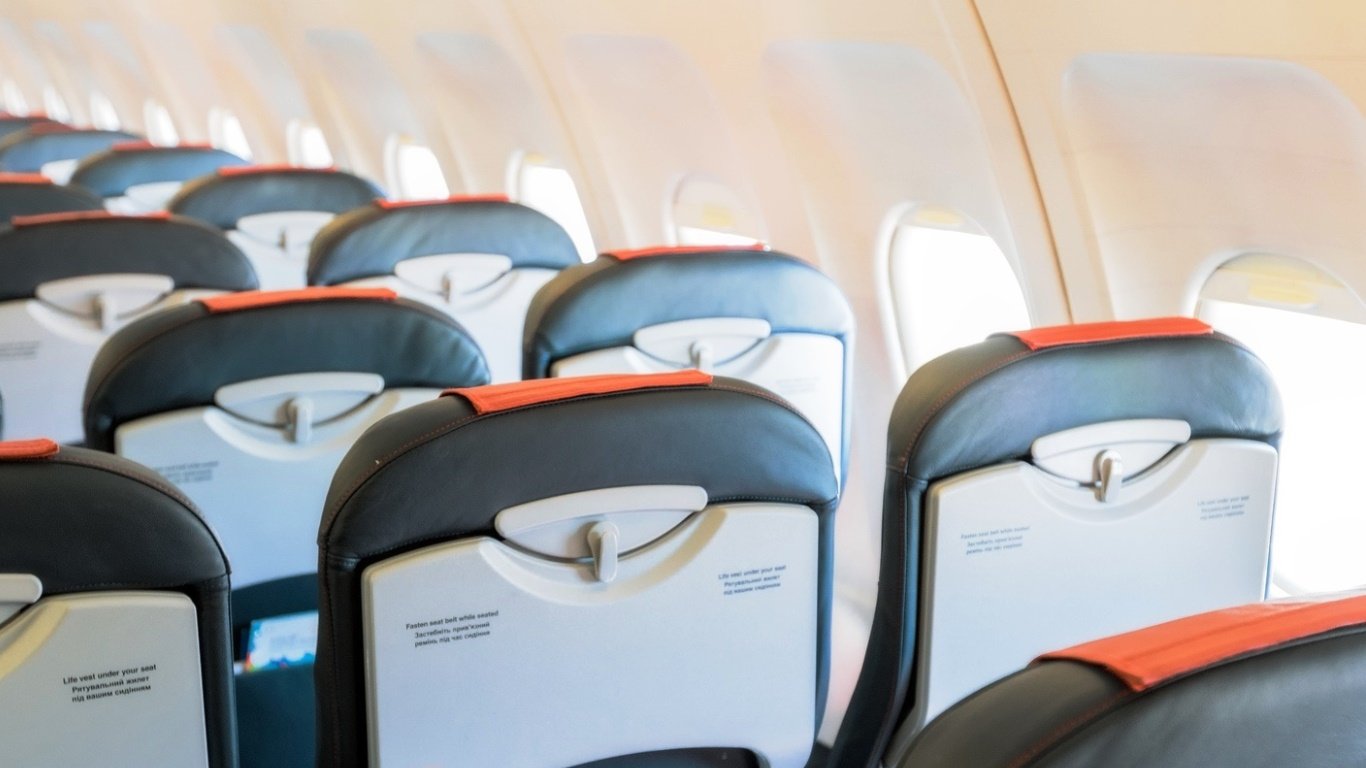Transportation
Will Smaller Seats Hurt Airline Profits?

Published:
Last Updated:

The U.S. House of Representatives has mandated that the Federal Aviation Administration set minimum sizes for seats on commercial aircraft. The bill in which the program is included goes to the Senate and probably the president’s desk. Among the reasons airlines have continued to shrink seats is to improve profitability. That help to the bottom line is about to be reversed.
Airlines have stuffed more and more seats into airplanes for years. Lawmakers believe that this is too much of a burden on fliers. As many Americans gain girth, this becomes ever truer. Therefore, at some point in the future, the size of airline seats may become too small without regulation.
Airlines, which routinely used to go bankrupt, have carved a much better financial situation for themselves. This is in part due to more efficient reservation systems, mergers that have driven down duplicate costs, fees levied for everything from meals to carry-on baggage, and route management that has made air traffic more efficient. Seat size has been an important part of the formula.
It goes without saying that a plane with 120 paid seats makes more than one with 100. The math has started to get even worse as oil prices have risen. Jet fuel prices are the uncontrollable variable costs that cause industry management the most anxiety. Hedging prices has helped some, but its benefits are limited.
The seat size issue puts government regulation up against consumer benefit, which has happened in dozens of other American industries. Airlines have gotten to wait for their turn, and now that wait is over. Passengers will get more room and carriers will get lower profits.
Finding a qualified financial advisor doesn’t have to be hard. SmartAsset’s free tool matches you with up to 3 fiduciary financial advisors in your area in 5 minutes. Each advisor has been vetted by SmartAsset and is held to a fiduciary standard to act in your best interests. If you’re ready to be matched with local advisors that can help you achieve your financial goals, get started now.
Thank you for reading! Have some feedback for us?
Contact the 24/7 Wall St. editorial team.